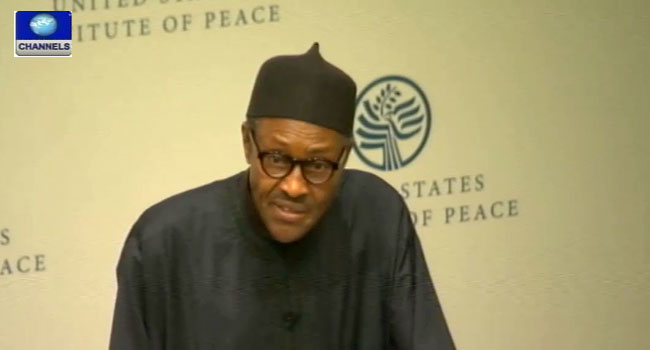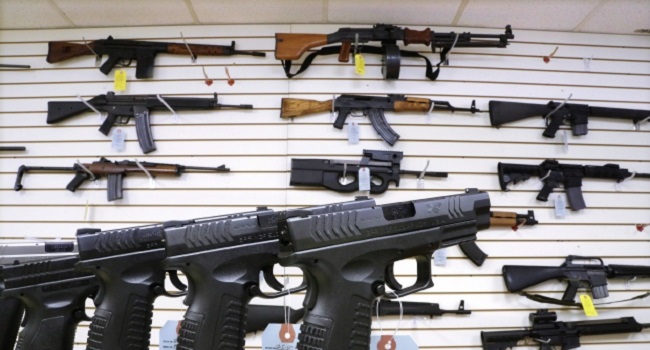
A delegation from the U.S. Congress told military authorities in Abuja, Nigeria’s capital on Monday, that the decision was part of efforts by the U.S. to enhance cooperation between both countries in tackling the Boko Haram insurgents in Nigeria’s north-east.
The delegation, which was led by Issah Darrel, who is also part of the Judicial Committee of the U.S. Congress, met with the Chiefs of Army, Naval, Defence and Air Staff in a closed door meeting.
The Leahy Law
The U.S. Congress deligation’s visit is coming almost two weeks after President Muhammadu Buhari’s visited the U.S. and had talks with President Barack Obama on the war on terror ongoing in north-eastern Nigeria, economic development and other issues of interest to both countries.
Addressing a gathering at the United States Institute of Peace during his visit, President Buhari stressed the need for the U.S. Congress to examine how the U.S. Government could provide Nigeria with far more substantial counter-terrorism assistance with minimal strings.

At that meeting, President Buhari said: “Regrettably, the blanket application of the Leahy law by the United States on the grounds of unproven allegations of human rights violations levelled against our forces has denied us access to appropriate strategic weapons to prosecute the war against the insurgents. In the face of abduction of innocent school girls from their hostels, indiscriminate bombings of civilians in markets and places of worship, our forces have remained largely impotent because they do not possess the appropriate weapons and technology which they could have had, had the so called human rights violations not been an obstacle.
“Unwittingly, and I dare say, unintentionally, the application of the Leahy law amendment by the U. S. Government has aided and abated the Boko Haram terrorist group in the prosecution of its extremist ideology and hate, the indiscriminate killings and maiming of civilians, in raping of women and girls, and in their other heinous crimes. I believe this is not the spirit of the Leahy Laws. I know the American people cannot support any group engaged in these crimes.
“I therefore strongly appeal to both the Executive Arm and the U.S. Congress to examine how the U.S. Government can provide us with far more substantial counter-terrorism assistance with minimal strings. The longer we delay, the deadlier the Boko Haram gets. At all events, we have re-written the rules of engagement protecting the rights of combatants and in particular safeguarding civilians in theatres of conflict”.
The Nigerian military had maintained that it had put into consideration the rights of citizens in its counter-terrorism operations, stressing that it would continue to uphold that commitment.
The restrictions on sales of arms by the U.S. to Nigeria is embedded in the Leahy law which prohibited the U.S. Department of State and Department of Defence from providing military assistance to foreign countries that violate human rights with impunity.




